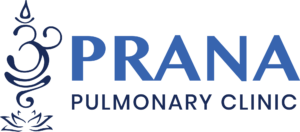Do you often wake up feeling fatigued, despite getting a full night’s sleep? Have you ever wondered why you snore heavily and occasionally wake up gasping for breath? If so, you might be among the millions of people suffering from obstructive sleep apnea (OSA).
Understanding Obstructive Sleep Apnea
Obstructive sleep apnea is a common sleep disorder characterized by recurrent episodes of complete or partial upper airway collapse during sleep. These episodes result in brief but repetitive interruptions in breathing, leading to oxygen deprivation and disrupted sleep patterns. OSA often goes undiagnosed due to its nocturnal nature, with individuals remaining unaware of their condition until symptoms become more severe.

Causes and Risk Factors
Several factors contribute to the development of OSA. One of the primary causes is the relaxation of the muscles at the back of the throat, which obstructs the airway during sleep. Other risk factors include obesity, excess weight around the neck, a family history of sleep apnea, smoking, alcohol consumption, certain medications, and structural abnormalities in the upper airway.
Recognizing Symptoms
Identifying the symptoms of OSA is crucial for timely diagnosis and intervention. Common signs include loud snoring, gasping or choking during sleep, excessive daytime sleepiness, morning headaches, difficulty concentrating, irritability, and restless sleep. If you experience any of these symptoms, seeking medical attention becomes imperative to prevent potential health complications.
Diagnosis and Treatment
A thorough evaluation is essential to confirm the presence of OSA. This involves clinical assessment, medical history review, and polysomnography, a sleep study that monitors various physiological parameters during sleep. Once diagnosed, appropriate treatment strategies can be implemented.
The treatment approach for OSA varies based on the severity of the condition. Mild cases may benefit from lifestyle modifications such as weight loss, regular exercise, avoidance of alcohol and sedatives, and sleeping in a side position. For moderate to severe cases, continuous positive airway pressure (CPAP) therapy is the gold standard treatment. CPAP involves wearing a mask during sleep, which delivers pressurized air to keep the airway open. Other treatment options include oral appliances, positional therapy, and in select cases, surgical interventions.
At Prana Pulmonary Clinic, we understand the profound impact that OSA can have on your overall health and well-being. Dr. Vijoydeep Rao, M.D., a renowned pulmonologist with extensive expertise in sleep medicine, leads a dedicated team of professionals committed to providing personalized care for individuals affected by OSA. Through comprehensive evaluations, state-of-the-art diagnostic tools, and evidence-based treatment approaches, we strive to improve your sleep quality, alleviate symptoms, and reduce the risk of associated health complications.
If you suspect you or a loved one may be suffering from obstructive sleep apnea, we encourage you to take the first step towards better sleep and enhanced quality of life. Contact Prana Pulmonary Clinic today to schedule an appointment with us. Our team is ready to guide you on the path to a restful night’s sleep and improved overall health. Remember, sleep apnea should never be ignored. With the expertise of our team at Prana Pulmonary Clinic, you can regain control of your sleep and wake up to a healthier, more energized you.










